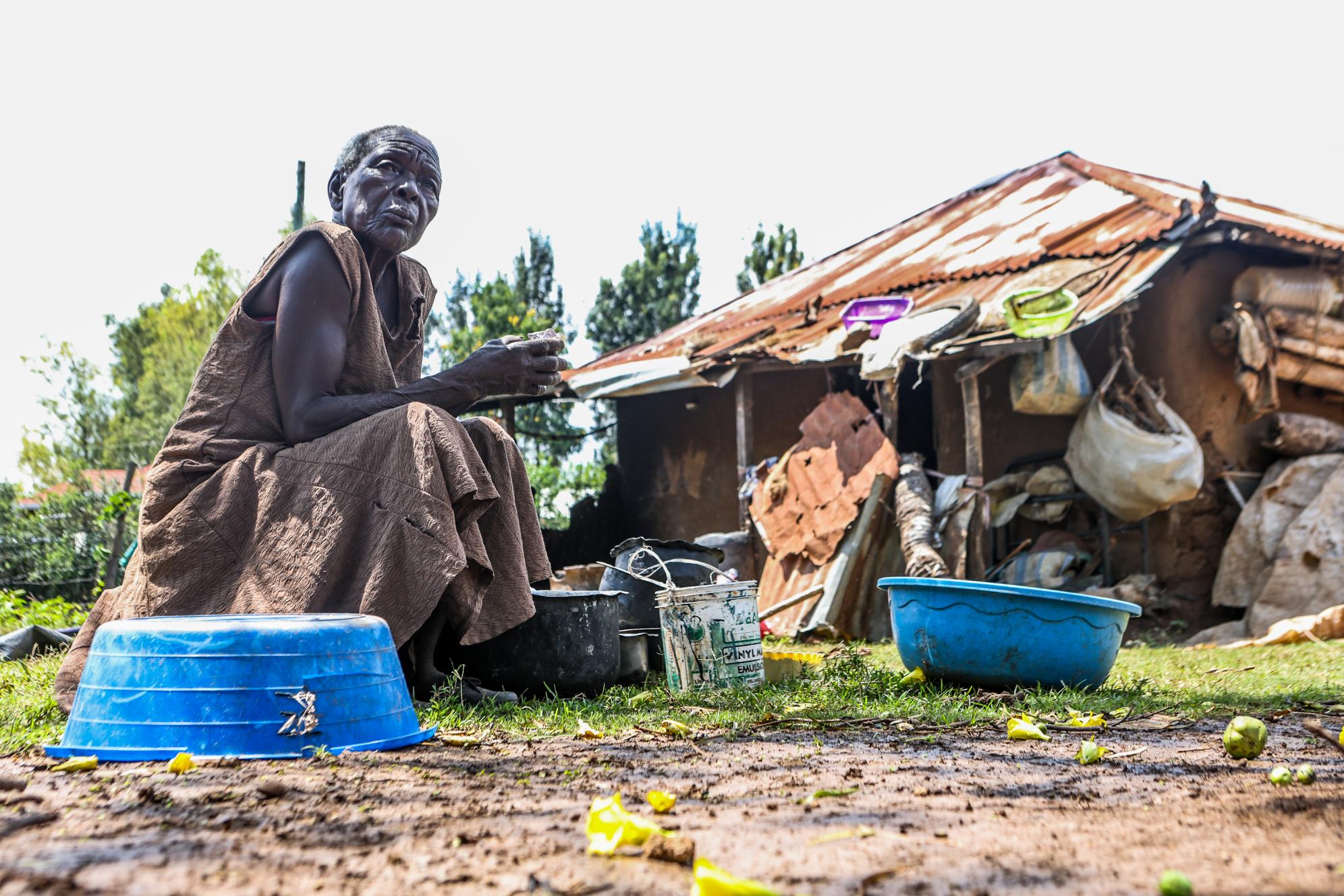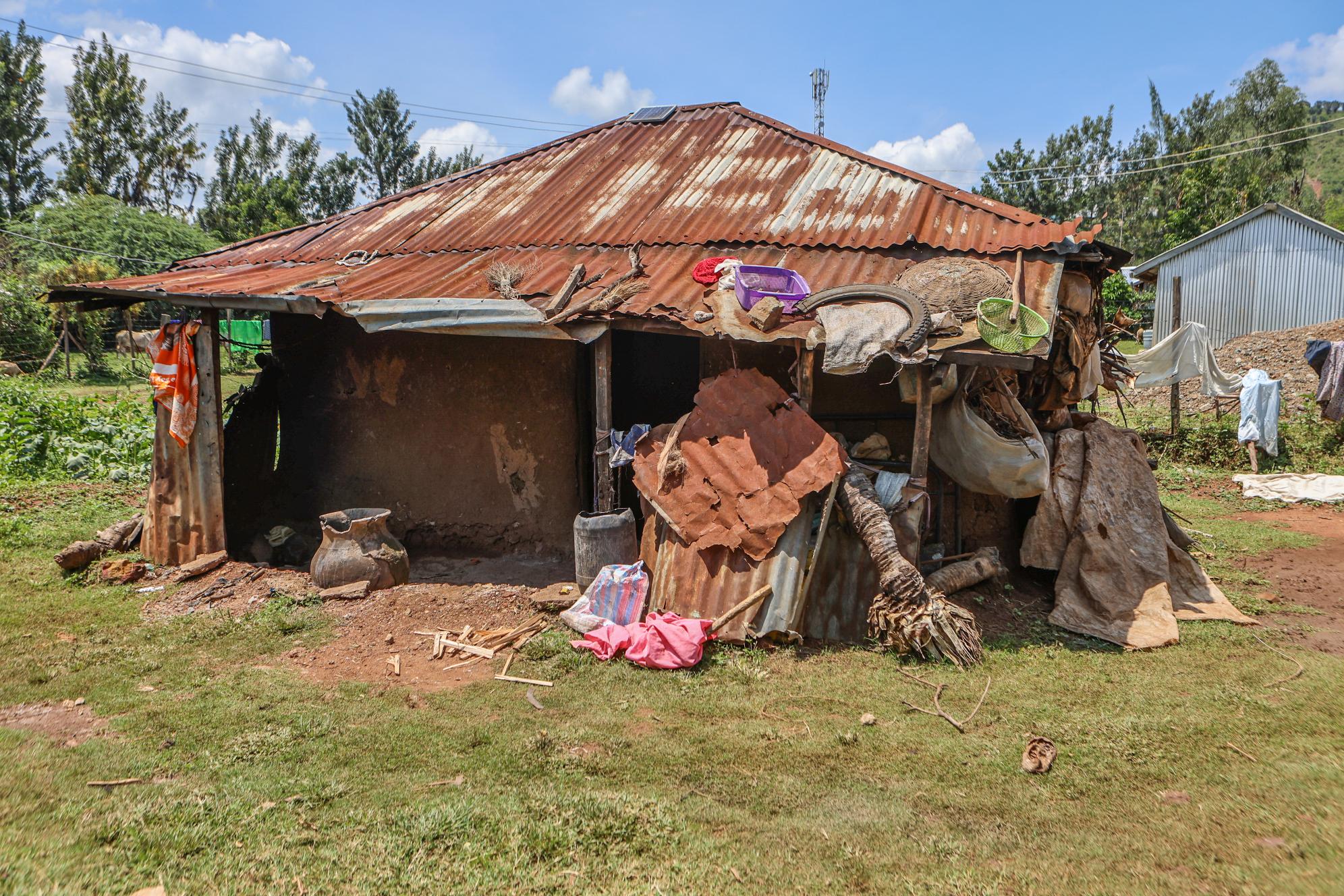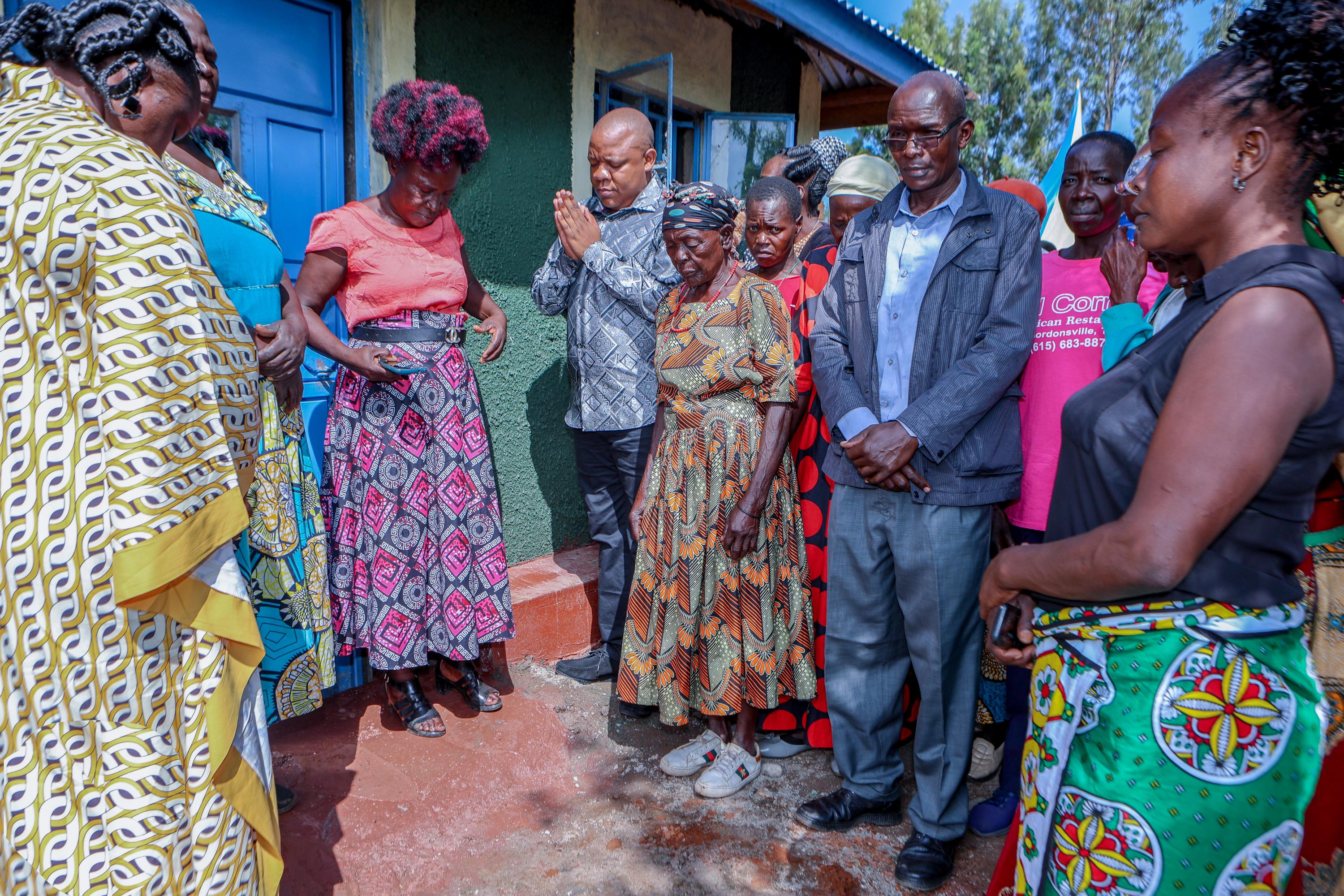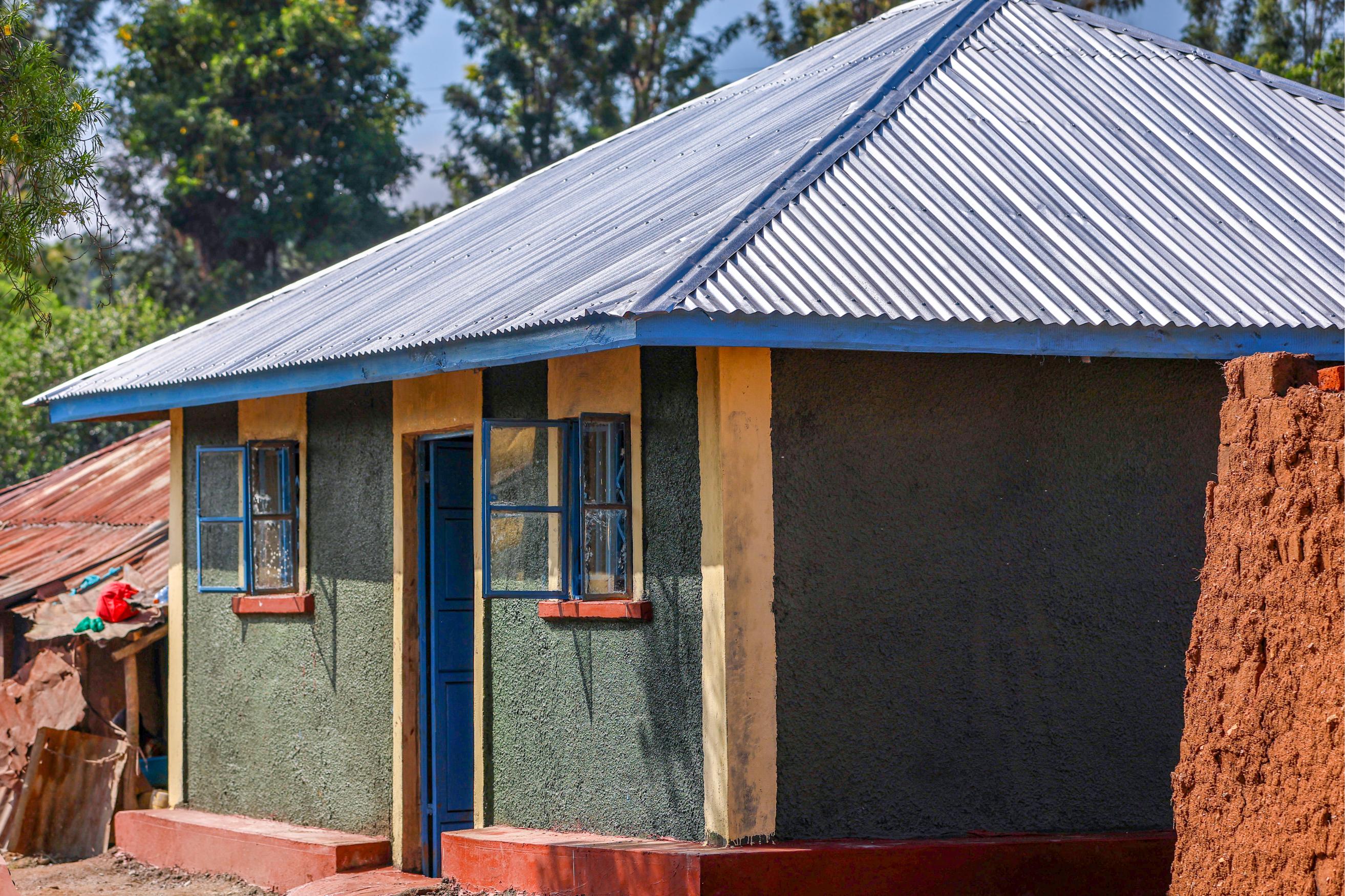

It is Valentine’s Day. A day characterised by love, care, friendship and admiration.
For most women, it is a particularly special day, when they spend it with a loved one.
However, for widows in the society, this perhaps is a day like any other, a day to remember their good old memories, which are gone forever.
When you lose your spouse, your world changes. You are gripped by grief and sorrow over the loss of a loved one, a friend and sometimes a breadwinner.
Despite being the time when widows need emotional support, this day, however, marks the beginning of their nightmares.
They have nobody but themselves, in a society that sometimes can be cruel to people who have lost their spouse to death.
For them, the vow “till death do us part” is going to apply to them, and their identity has probably been forever changed by this promise.
Widows in Kenya, irrespective of class or tribe, have endured silent struggles, rejection, dispossession and, for most, the eventual crushing weight of abject poverty amidst a culture that is rife with harsh judgement for any decision she will make concerning herself, her children or property.
They have been left to fend for themselves, some with barely a place to call home. Some have to go through long cases of property cases that in some cases lead to them being disinherited.
Suddenly they are exposed in ways they will never recover from. However, it is not all doom and gloom.
Eunice Ogallo, 63, a widow from Kisumu, lost her husband five years ago. What followed was years of misery.
“We used to sleep with cows because we had no house,” she said.
She and her three grandchildren endured harsh conditions, struggling through cold nights and heavy rains that left them soaked, with water filling their shelter.
Forced to sleep outside with her three grandchildren due to the deplorable state of her house, she endured unimaginable hardship.
The roof was completely damaged, offering no protection and dignity but now, those painful days are behind them. She is finally breathing a sigh of relief after getting a three-room home built by the Widows Empowerment Programme.
GIVING HOPE
Today, Ogallo and her grandchildren have a safe and comfortable place to call home, marking a fresh start after years of struggle.
The Widows’ Empowerment
Programme is now giving hope,
nurturing resilience and fostering
independence among widows,
who have continued to face increased vulnerability due to economic hardships, social isolation,
legal discrimination and emotional
distress.

Under the patronage of Interior and National Administration PS Raymond Omollo and a team of selfless and dedicated individuals led by the Programe's Director Victor Ayugi, the programme has spearheaded a number of socio-economic activities aimed at improving the lives of widows and their dependants in various parts of the country.
Notable challenges that the widows are facing, which the programme is seeking to address include inadequate shelter, issues around wife inheritance, and the right to own land.
Giving widows the dignity of a home to renew their confidence in their communities and lift their once pained countenance as parents to offer a spring of hope for their children.
In Siaya County, Jane Atieno from Sifuno Widows Empowerment group is also a happy woman. The group has 150 widows.
Atieno said that her widows' group received financial assistance of Sh100,000, enabling them to purchase chairs and establish a table banking programme.
According to her, the funding was a breakthrough, giving widows access to loans to start their own businesses and achieve financial independence.
"Many of us used to work for others, drying or selling fish all day just to earn Sh200. But with this initiative, widows can now borrow funds, invest in their businesses, and repay with a small interest," she said.
Atieno said the widows' group has expanded their financial ventures by leasing chairs for weddings and burial ceremonies, generating additional income to sustain and grow their projects.
FINANCIAL FREEDOM
She said the programme has not only empowered them economically but has also given them a renewed sense of hope and self-reliance.

Under the patronage of Interior PS Raymond Omollo and a team of selfless and dedicated individuals led by director Victor Ayugi, the programme has spearheaded a number of socioeconomic activities countrywide to improve the lives of widows and their dependants.
Notable challenges the widows are facing, which the programme is seeking to address, include inadequate shelter, issues around wife inheritance and the right to own land.
Giving widows the dignity of a home renews their confidence in their communities and lifts their once pained countenance as parents to offer a spring of hope for their children.
In Siaya County, Jane Atieno from the Sifuno Widows Empowerment Group is also a happy woman.
The group has 150 widows. Atieno said her widows’ group received financial assistance of Sh100,000, enabling them to buy chairs and establish a table banking programme.
She said the funding was a breakthrough, giving widows access to loans to start their own businesses and achieve financial independence.
“Many of us used to work for others, drying or selling fish all day just to earn Sh200,” Atieno said.
“But with this initiative, widows can now borrow funds, invest in their businesses and repay with a small interest.”
Atieno said the widows’ group has expanded their financial ventures by leasing chairs for weddings and burial ceremonies, generating additional income to sustain and grow their projects.
FINANCIAL FREEDOM
The programme has not only empowered the widows economically but has also given them a renewed sense of hope and self-reliance. They are empowered and can put food on the table.
Their living standards and overall well-being have significantly improved.
“We were once looked down upon, struggling daily just to survive. But now, we are flourishing,” Atieno said.
“You can see it in my face. We had lost weight due to hardship, but today, we are nourished both physically and emotionally.”
Triza Mokasa, a member of the Uchumi Widows Empowerment Group in Migori county, shares a similar story of transformation.
She says the programme has uplift- ed their lives, turning despair into hope.
Many of them once lived in makeshift or dilapidated houses, but today, they proudly own permanent homes.
“The programme opened our eyes and helped us rebuild our lives,” she said.
Their group received Sh100,000, which they used to buy chairs for hire, while the remaining amount was invested in table banking.
Mokasa said the financial boost has enabled all 120 widows in her group to venture into various small-scale businesses, helping them thrive like never before. She said currently, there is cash flow, and their homesteads are filled with happiness because they can afford food and other basic needs.
To them, Omollo’s Widows Empowerment Programme is a beacon of hope that is turning pain into power and struggles into success.
The programme has not only transformed thousands of lives, restoring joy and stability in homes that once knew only hardship, uncertainty and pain.
The initiative has given widows a second chance to heal, rebuild and thrive. Now they stand empowered, no longer defined by loss but by strength, resilience and the promise of a better tomorrow.
Beatrice Okinyi, a member of the Widows of Virtue group, has experienced the challenges many widows face after losing their husbands.
Most have their property taken away, leaving them with nothing. Okinyi said through the programme, many widows have become self-dependent and are actively rebuilding their lives and shaping a better future.
Ayugi, the programme’s director, says mothers are the anchor of communities and homes.
“It is mission-critical that they are reinforced, especially when widowed, so that we guarantee the safety and progress of our children in health, education, nutrition, security and, simply summed up, love,” he said.
Pitalis Ogendo, the project manager, says the mission of the programme is to uplift widows by providing financial support, business management training and practical solutions to their daily challenges.
The programme also trains widows in table banking, equipping them with essential financial skills to create job opportunities and enhance economic stability, he said.
CALL TO ACTION
Love is the universal language that needs more action than words, yet widows often get neither.
The prominent issue facing widows in Kenya is property rights, and that spells doom, homelessness and poverty for widows and their children.
This Valentine’s, make it easier for a widow to safely own or inherit a property.
A startling, convoluted tragedy is that 50 per cent of widows lost their partners before the age of 40 years, according to research carried out in Egypt, Kenya and Malawi, and they are about 15 per cent of Kenya’s population.
There are more than eight million widows whose love story is different this season.
The familiarity of support, partnership and commonality of purpose in bringing up children, and the cherished responsibility of caring for parents together, cushioned with warmth, belonging and love, suddenly falls off from beneath their feet.
According to UN Women, despite the fact that there are more than 258 million widows around the world, widows have historically been left unseen, unsupported and unmeasured in societies.
The UN raises concern that armed conflicts, displacement and migration, and the Covid-19 pandemic, have left tens of thousands of women newly widowed, and many others whose partners are missing or disappeared.
“As widows move through their own experiences of grief, loss or trauma after the death of a spouse, they may also face economic insecurity, discrimination, stigmatisation and harmful traditional practices on the basis of their marital status,” the UN says.
In some cultures, widows are considered impure, and tradition dictates that they must be ‘cleansed’ of their partner’s death.
The aim is to chase away the demons. The ritual requires women to have sex either with a relative or a stranger.

The UN says that in many countries, widows do not have equal inheritance rights, and they may be stripped of their land, evicted from their homes or even separated from their children.
Lack of awareness and discrimination by judicial systems can cause widows to avoid turning to the justice system to seek reparations, it adds.
“They may be denied access to inheritance, bank accounts and credit, which can have significant financial impacts for them, their children and future generations,” the UN says.
It is estimated that nearly one in ten widows worldwide lives in extreme poverty.
The UN recommends that programmes and policies for ending violence against widows and their children, poverty alleviation, education and other support to widows of all ages need to be undertaken in the context of action plans to accelerate achievement of the Sustainable Development Goals.












